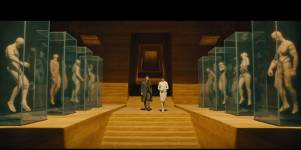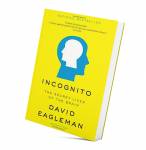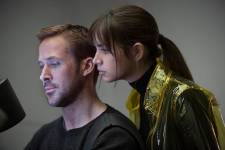Have I done all these things?–--or do I dream? Or am I mad?
-- Edgar Allan Poe, from a letter to Helen Whitman featured in
The last letters of Edgar Allan Poe to Sarah Helen Whitman
Review Snapshot:
With Roger Deakins' gorgeous cinematography and a strong supporting script rich in universally debated themes, Villeneuve delivers a Blade Runner sequel fit for the 21st century generation, fiery red LAPD guns a-blazing.
I guess Los Angelenos prefer rain to sunshine now.
-------------------------
I have been, and always will be, an existentialist. An aspiring one, anyway. High school's taught me that much. Your basic Camus, Whitman, and Hamlet. We read, we questioned, we brainstormed. And it's stuck with me since then.
(Unsurprising for a natural over-thinker and introvert.)
Why are we here? What's the purpose in life--no, not that purpose. Not the - you've got to live life to fullest and bask in the security you've worked half your life to rely on type -- the real purpose, if it exists, if at all? What are we doing--what are we really doing? Each day, hour, minute. Existing. What does it mean to exist? What does it mean to just--be?
What does it mean to be human?
Do Androids Dream of Electric Sheep? : The Baseline Test
I chuckled at this question in the theatre (my first IMAX experience in Bangkok, and a 3D one at that. Imagine. Are we ever so lucky to have one in five of the world's superior projection technology. Still, no place is ever the same without the memories. No place is ever the same without the 'used to' - I used to sit here. We used to be there. I'd looked up here, and gone down the stairs there. Not here, not yet. We're not acquainted. I've yet to familarise myself with this place. And I kept struggling to see the BFI Southbank's IMAX ever so vividly in my mind as I took my seat. Those railings. The giant eight-storey screen. The metal frames behind it. I'm trying not to forget, but the memory's slipping from my mind these days. More on memories later. I'm getting ahead of myself.)
the book. the legend. the beginning.
Androids were supposed to feel naught - as the discussion with my friend after the film informed me - a straight, even line on the conceptual emotion monitoring screen. Simple repetition of words would suffice to remain in service and on the job. Hampton Fancher's and Michael Green's screenplay revamped the hotly debated questions of the original film (and the still all-too-relevant Artificial Intelligence question): If androids are without souls, could they ever be human? Are they human?
"You've been fine without one," said his superior as he walked out the door.
"What," asked our friend, Officer K.
"A soul."

let's go shopping.
This theme of AI's humanity emerges again and again in popular Sci-Fi culture - Robbie Williams' Bicentennial Man (1999), Arnold Schwarzenegger's Terminator films, and even, I daresay, Stepford Wives (2004) - it's as if man entertains the idea of fearing his own creation, and Sci-Fi authors have always been two steps ahead of the game, propping questions, subtly slipping them between lines of short stories and novels that have our minds spin as we tear them apart in our minds, ever since I can remember.
There's something attractive, yet menacing, about the uncontrollable. About the uncontrollable gaining, grasping and having the upper-hand over us. About an intelligence, manufactured; an intelligence, conceived and created and birthed by man, to take over and own and manipulate man. There's power, we find, either power or an absurd sense of reassurance, in examining a manufactured intelligence so closely under one's microscope to distinguish ourselves from them, to pat ourselves on the back and revel in how human we truly are. How we are not, and will and can never be, them. And how they are not, and will and can never be, us.
That pivotal point is many a Sci-Fi tale's springboard from which plot points and themes surge like wildfires. Because, being human - savvy enough to create, perceptive enough to design, curious enough to engineer - we started asking: What If?
(Reminds me, at the time of writing, of no other place but my undergraduate alma mater. As the university most renowned in Canada for its engineering program and as the inventor of the BlackBerry, we don't ask Why. We ask: Why not?)
What if androids can become us? (Why not?) What if they, too, become so human they develop the capacity to think, to imagine, to dream? What if 'being human' is no longer a mere adjective? What if, in gifting them with human abilities and capabilities, they long to become, and work at becoming, humans themselves? Where are the boundaries? Where is the line to distinguish what is human and what is not?

Lars and the Real Girl: the sequel
Is thinking human? Is feeling human? Are the two acts complex enough to qualify what are essentially high-functioning machines in human skin suits to be human?
Blade Runner 2049 goes further in asking, can an android, born and raised since a human birth, be human? And if it is, does the rest of the androids deserve to be?
6.10.21: The Reality of Nostalgia
A cliche quote by Hunter S. Thompson goes, "You can't miss what you never had." Dr. Ana Stelline's genius turns the concept on its head.
Inside her quarantined, white haven of a hiding place slash laboratory, I discovered my heart. If it were for any other scene, I might have left the theatre content with the film and moved on. This one hit me square in the chest.
She lives a solitary life sheltered by a wall of glass. "My parents place me here," she told K, "Filled it with everything that could make me happy...." a pause, as she's smiling a sheepish, knowing smile at him, "... except company, of course."

I'm with her.
Earlier in the film, K's superior - Robin Wright swapping her First Lady duties for an ice-cold, immaculately charming LAPD director - told him, "We're all searching for what's real," and the sentiment echoed again as K materialised in Stelline Laboratories desperate to prove the reality of his childhood memory.
And the calmness, the intricacies, and the heart with which Dr. Stelline crafted her memories had me weeping inside as I watched that scene. Screaming: that - that is why - that is why I write.
An introvert in an almost impenetrable (some would say sheltered and they wouldn't be wrong) world of her own, I imagine to escape. There are spaces and times when one flees reality for refuge in someone else's, some other character's mind, and stay there, lingering, to investigate, form, create, craft memories that were never really there, that have never existed in the first place. When you haven't experienced it, or when you have (but you're thinking there's still so much left unexplored of the world), you imagine.
And the trick, I believe - and as Dr. Stelline has voiced in the film - is not the details but the feelings. I write, imagining myself in the characters' shoes, in the characters' minds, their thoughts, their struggles, their fears, their happiness, their failures and disappointments. I write, channeling the feelings into rhythm, into repetition, into words, ordered sentences, formed and perfected and sounded the syntax out in my head. As the characters would to themselves. Everything - and I do mean everything - of every fictional word I've ever written, first and foremost, runs on feelings.

actually one of my favorite books.
In a way, characters and the fictional world are artificial intelligence. They're human creations, immaterial and invisible to the naked eye. Existing in our fantasies and living lives written for them in our words, read aloud and in silence in our heads. They're human, because we believe them to be. They're human, because we let them be. They're human, because we allow them to be.
They're human, conceptually, because they, unlike sci-fi androids, do not yet exist.
By exist, I meant life and blood, breaths and a beating heart. An oxygen consumer and a two-legged walker, a material thing that, by grade school scientific definition, occupies space and uses up energy to function. To be.
(Can you hear Hamlet a-calling?)
(Don't you just love those two words.)

to be or not to be: are you my father?
But, circling back to Wright's character's usage of the problematic "real," the deceptively simple, world-wearied sentence bears weathered experience and a whole universe's back history of weight. Real, may be questioning androids' humanity. Real, may be searching for the thin line between illusory and real memories. Real, may be humans searching for something substantial - something objectively - and not subjectively - human ("Oh, you don't like real girls," the alluring Mackenzie Davis's flamed coloured hair Mariette cooed to K through her glossy peach lips.). Real, could mean genuine, or what is thought of as genuine. Real - by asking what if, why not, and imagining and engineering the possibilities - how do we even know anymore?
How could we?
And that is why it is, and always will be, a search.
The 'we' is never defined - though in directing the sentence toward K, Wright's character may have implied androids were included in her sage-like message. A wonderful revelation, on writing this reaction piece, is that the sentence is almost a meta-reflection on the film. The attention focused on androids in the sci-fi genre, the meditation and reflection on existentialism and androids' humanity - all to the surface meaning of genuine feelings from one person reciprocating another's, we're constantly searching for the realness in our lives, sci-fi or an imagined version of the future or not.
And we can easily lose ourselves doing so.
Though 'we' may ring a different tune in androids' ears. Had they been searching for something real, it circles right back to their humanity, their realness, that sense of entitlement, verification, and security that they, products of humans' engineering, are as real as humans, as genuine as we are, as human as humans are real.

choose Wallace Technologies, and she will want to be real for you.
Strange that we are now, in our age and times, (at least I am) considering the realness of something synthetic, something once considered 'fake,' and inhuman for lack of souls. For androids in Dick's world are no longer The Wizard of Oz's heartless Tin Man replicas - they are as vigorous, as vivacious, as alive as we are - as breathless, as traumatised, as heartbroken as we could be. No more are they dumb walking pieces of steel - they're beating hearts and oxygen consumers. Two-legged walkers with minds and wills of their own, missing only for our so-called immortal souls, a fact that stacks the case in their favour instead of ours.
Because they are real. Because they exist. Who's to say they are not? To who must they prove that they are?
For what must they continue searching for? What must they search for?
"Real memories are confusing," said Dr. Stelline, and my mind jumped to Christopher Nolan's Memento (2000). I remember reading a chapter from Mark Manson's The Subtle Art of Not Giving a Fuck on the scientifically tested human ability to manufacture and ruin our own, genuine, honest-to-god real memories. Both fiction and non-fiction sources read in support of that lone sentence.

that's elementary mindfuckery, my dear Watson.
And that, once again, readers, is how I write. I prefer having my readers do some work on their own, and shuffle memories in chunks, having fun with redistributing non-linear timelines and chop up, dissect scenes as characters would have remembered them. I write, imagining memories play out as scenes in my head, in front of me, and around me, tweaking the details as Dr. Stelline did with her tool, bit by bit, word by word, sentence by sentence, punctuation mark by mark, space by space.
Real memories are confusing, I repeat, and we can never know exactly how we remember them, how we have processed them in our minds, and how we have stored them.

did it really happen.... to me?
I like to think of faded memories as dreams, those that we wake up first feeling what we felt during them and starting to piece together actual events a few minutes after half-sitting up on the bed. As previously mentioned, feelings are the base, lay the foundation. Then come the events.
But memories are funny, ironic. They are real, by way of withstanding and defeating the power of time. There are those, recent as they are but faded and failing as they should be vivid, just as there are those which one remembers down to the minute detail of the colours, the odours, the specific film banners on the exact cinema in central Toronto on a particularly snowy winter day, thought long lost but provoked by one single showing of the sequel to that film watched on Valentine's Eve, three years ago.
I Always Knew You Were Special: Living Life's Purpose
A Joi is a commercialised pleasure machine. Programmed to flatter, to cater, to bend to man's will. As the female 'should' be.
hey, Joe. (aren't you the average guy.)
(cue a lengthy #Feminist2017 discussion.
Let's dip into the aside, irregardless, a Women in Popular Culture course graduate and all.
If my memory serves me right--ha, correct me if I'm wrong. Because, as Wallace puts it in one of his more mundane quotable lines, there's nothing truer than fact. And our fact is Ridley Scott's 30-years-prior is very much a recorded memorabilia of the Blade Runner world, as imagined in 1982-- men's pleasure machines have scarcely changed.
You may accuse me of reading too deep into this, but here we are again: male fantasies, projected on screen and in literal larger-than-life, cotton candy pink fashion exemplifying and forcing the male gaze on the opposite sex.
It's typical, cookie-cutter sci-fi (God bless Golden Globe winning San Junipero, 2017) imagery of the female-- so you may as well skip my little detour.
Based on the film's depiction of 'default' Jois, the imagined, Ridley Scott world's 2049 male ideal of feminine attractiveness is all curves and demureness, a lithe, statuesque model of full, voluptuous breasts ripe for the touch and inviting to the thirst. She's void of male-decreed imperfections, a size 0 'beauty' looking at the world, at her masters, through wide, coquettish eyes under thick, lengthy eyelashes and perfectly groomed brows.

want me. call me. have me. buy me. (you know you want to - xoxo.)
And I know, I know. This is the part where you stop me, hand raised and voice sharp in your concern for my misunderstanding in my limited knowledge of the Blade Runner universe, (see, I'm imagining even you, dear reader, from behind my glass wall) but I was - and am saying- standard Jois.
We are aware androids could be customised, engineered to satisfaction, but did we, in all of the establishing shots, ever see variety? Did we ever glimpse Jois transformed into the blatant, in-your-face 'whatever you want to be' advertised on every building and every street corner?
And on that note, where's my female Blade Runner? Would I ever let go of the flickering, feeble hope of seeing at least one in my lifetime?

it's okay. he doesn't love you the way i do.
Brushing off the aside, we did see Wright's solid pillar of an LAPD director, Dr. Stelline's established genius, Mariette's seductive feminine wiles, and Luv's headstrong, one-track loyalty.)
The role of K's specific Joi (an enticing Ana de Armas) is no different, seemingly saved by her customisation to K's preferences.

she's your personal Ghost.
"I've been inside you," snared Mariette at Joi, "There's not much there."
While this could be interpreted as a direct derogatory stab at the artificial being which had the nerve to order her comings and goings out of another droid's apartment unit (taking the authority angle on the androids' humanity theme, this time on a meta, android-to-android level), we see an android's outlook on another: discrimination for existing in a whole 'nother class, frank brutality for what is deemed an in-between status of existence.
Armas' Joi evokes recollections of David Lowery's A Ghost Story (2017), another film expertly maneuvering around time and space's inherent fluidities. Eschewing the conspicuous white sheet (an excellent no-frills Halloween costume), her Joi exists, lives and breathes (artificially, at least?), in a ghostlike fashion, hovering around K, and, unlike Affleck's afterlife counterpart, actually seen and heard but unable to touch.

Rooney Mara (right) and Casey Affleck (for real, left) in David Lowery's A Ghost Story (2017)
"I want to be human enough for you," confessed Joi, as she synced into Mariette, begging for the question-- would we classify androids as they have done so themselves? Would we, authoritative figures that we are in the big bad world of reality, deliver the final sentence on what is real and what is not, and what is human and what is it? Would we? Do we have the ability to? Are we mistakenly presuming that we do?
Shouldn't androids be--well--themselves? Be their own humans, as it were. Be the humans they want to be, not as we want them to be, not as we designed them to be.
And would that last sentence, as Sapper's old companion rose up underground toward the film's conclusion, ignite a rebellion?
"Revolution only needs good dreamers who remember their dreams," penned my favorite playwright, Tennessee Williams (dysfunctional Southern families debating illusions, reality, anguish, and death are my forte), and we land right back on square one.

do you dream, sweetheart? do you think of me at all, or are you just programmed to?
We never can know if androids possess the ability to dream, human as the latest models are. We do know they are capable of memories, humans taking painstaking precautions in installing microchips for storing memories, by way of our saving data to the Cloud and in portable hard disks, and Amas' Joi reminding K his fixation on the '6.10.21 wooden horse story' - a Trojan horse luring him, the film's (and the audience's) ultimate red herring, into the falsely comforting notion of owning the childhood memory he (could claim to) possessed.
"You thought it was you," proclaimed Freysa, shattering K's and my stable rock within the audience's Logic Land (Clank! I heard glass splitting into shards in my head. Cliche averted, good job film.)
"We all did."
Because, as I discussed with my friend after the film, believing gave K (and the audience, let's admit. I'm willing to.) a sense of purpose. A lofty, somewhat defined goal of existing, a purpose, of being the other, of being An Other. Singled out of from the rest and left long undiscovered.
As we often like to fool ourselves.
Because entitlement is an easy, open trap. Tempting and inviting to fall into and call your own. We want to believe we are special, that we are made for something more, that we are meant for something more, android or not. It is, as I'm writing this and pondering it, a very human thing to do.
But as Mark Manson pulled the curtains in The Subtle Art of Not Giving a Fuck, you are not special. Hell, you're one in a herd of fellow humans who want to believe (and are already believing, diving headlong into believing) that you are.
There's no such thing as a personal problem, Manson wrote, ordinary is what actually matters.
I may be venturing into Self-Help territories here, but this is a film's reactions piece, rather than a review, as I tend to do.
(Oops.)
We take our problems to heart. We mull them over in our heads, and we think we each own the world. We think the world owes us something in return. A reason, an explanation, a reward, a transition to a better, more preferable state than the current.
Anything but now.
Gosling's K grasped onto that purpose and ran.
Androids can slip, just as we are, into entitlement, adopting a human characteristic in their desperation to become more human, to become real.
Because, after all, what is the purpose of existing, if simply to serve, to be a second-tier human skin suit?
"I always knew you were special," crooned Armas' Joi, and we glance back on this statement thinking: Android to android - or human to human, be that as it may - it's flattering to think so, it's blissful to believe, but certainly worse to act upon.

i want to believe: android reboot
She's on your side, we know that, but how has she always known? What could she have meant by 'special'?
Here I sense my psychology lectures kicking into place, self-serving biases and all. When the self is our constant companion, is the only entity we can wholly trust, why not believe - why not give in - that you are right?
The American comedian Emo Philips once pronouced, "I used to think that the brain was the most wonderful organ in my body. Then I realised who was telling me this," and we realise, in turn, how deceptive, how faulty, our human minds are.
How believing false truths is inherently human, and if that's how the brain and the mind God's gifted us with work, who's to vouch for our own carbon copies in the androids?
Dying For a Cause Is the Most Human Thing Someone Can Do: Acknowledging Pain
"You do not know what pain is yet," spoke Jared Leto's philosophical 'Father of the androids,' (whose performance is described by
The New Yorker's Anthony Lane as
'an actor trying a little too hard' - and I cannot disagree) to Ford's alive-and-kicking Deckard, "You will learn."

you self-established god.
As Edward James Olmos' Gaff acknowledged to K, "Pain is what makes you human," pain kicks into gear the very sensation it threatens: the realness of being alive. The pulsating blood underneath our flesh and skin. The stable, undisturbed safe space in our heads. The peaceful sanctuary of our minds.
Pain is that disruptive technology, an unseen enemy persisting under unseen currents, throwing our calm ignorance into disarray.
Yet pain, according to Manson, highlights to us "our own limitations." Because to be human is to have limits. To be human is to live with glaring imperfections and move on in spite of them. To be human is to feel the very forces that have us acknowledging our existence, our fragility as flesh and blood, our fleeting, organic bodies on this earth.

you got any more whisky left to smooth over that revelation?
But, the film seems to ask, is that not what androids, notably K, been doing? Weathering pain? Gluing back torn skin and running 99.9% toxic-cleansing water through its pores. No matter the final verdict on Blade Runner's deepening mysteries, androids' existence has shaken the core of what it means to be human, and who are we, to question one of our own?
Gosling's expressions as a dying K stays with me. It is one of a zen, peaceful acceptance, a willing transition into 'retirement,' as having done one's part, as having carved out for himself a purpose, even if it was not one he'd initially fooled himself into believing to be, and having accomplished that purpose, to his own last, human-created breath.
And, in response to Deckard's "Why me? Why save me?", we understand, as we watch a genuine smile break out on K's taut lips, for one of the first times.
Are You Still There, K? : Concluding Tidbits
Are you still there? may be my question to you at this point, after that long-winded discussion that Got Real in a way I hadn't expected when I typed the first word (nor did I expect I'd spend my last Friday night hours and early Saturday morning wrapping this up, before Villeneuve's masterpiece disappears from my - ahem - faulty memory entirely).
Regardless.
Watching the film in IMAX was worth every Baht. Deakins' stunning cinematography is the sort of beauty that takes your breaths away - I'm not exaggerating when I say this - from the foggy mist of Sapper's secluded farm, the interiors of Sapper's humble cottage (and I honestly spent the first few minutes thinking,
Is it too soon to fall in love with a film after a few minutes in?), to the sodium streetlights-tinted wasteland,
said to have been inspired by photographs of the 2009 Australia dust storm.

i fell in love.
It's a treat, an immense pleasure, as Dunkirk (2017) was, to witness this piece of art unfolding in IMAX.
Some films, as they say, underlie the need for a filmmaker's visions to be projected on the silver, 8-storey high screen, and it is my utmost enthusiasm to concur that Blade Runner 2049 is a prime, unmissable example of one.
(Hans Zimmer's blaring, dramatic score is a thrill to feel reverberating IMAX's propped up, cushioned seats, no less.)
Let me leave you with Joachim Trier's wise words: "Cinema is a wonderful art form for talking about loneliness," for beneath their synthetic and real skin, each android, each human, are innately alone. In their existence, in their fights and struggles for meaning and life's purpose.

i walk a lonely road-- wait.
No man is an island be damned, but we were -- and I stand by Buddhism in referencing this -- born alone, and we leave our material existence, essentially, morbidly, alone.
Blade Runner's questions are those of simultaneous, race-threatening public affairs and personal, private existential sufferings. And no place else can provide lone inquiring minds an elegant unfolding of solutions and further mysteries.
No place else can an introverted cinephile like me feel more at home than here, cushioned red seats and gigantic projection screen blaring an auteur's imaginations and scripted visions, debating universal themes bubbling beneath lives' mundane surface.

this scene was a true attention-stealer.
It's my breaths. It's my addiction. It's my drug. It's my love.
Cinema is an integral part to my humanity - to our humanity.
A two-sided mirror asking us to question and introspect ourselves.
Cinema is what makes me me.
--------------
A. S.
07.10.2017.
Bangkok, Thailand.
Update: Just received the book I ordered late last month. So maybe there'll be an additional article tying this into Blade Runner 2049. Be on the lookout for that :)
xx
A.

























เข้าสู่ระบบเพื่อแสดงความคิดเห็น
Log in